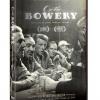Search the Community
Showing results for tags 'testing'.
-
The late cinematographer Robby Müller was a big advocate of testing. I remember watching an interview of him talking about doing extensive tests of various filters for an upcoming BW film. From what I recall, he said he ran film tests for a couple of weeks with filters. And in the end, he decided filters were not up to the job for his film. Müller was an advocate of letting the camera stay in the background and not having camera work be the main thing. Internet Photo: Fair Use Robby Müller, Inventive Cinematographer, Is Dead at 78 - The New York Times (nytimes.com) Bringing it home to our own forum, I read countless questions here that can't be solved by words, they have to be solved by tests. In the digital age you can't get things any easier to test than digital. And with film, testing is even more important. So, I can't understand why people have such a block to testing things. Can you tell me why? Recently I joined a forum that deals with various still scanning methods and post work. As specialized forum for scanning, I thought it would be a given that members would have test results comparing a flatbed scanner against a camera scanning setup, as they had sections for both of them. My interest in camera scanning is my archival work. Some archival work, especially some cine' film, is not conducive to flatbed scanning. So, I would like to know how methods compare before throwing some money at it. As well as knowing what direction to throw the money in. You would have thought I was from outer space asking the forum that question. I got nothing useful from the forum except a lot of replies criticizing me and my request. Not looking for pen pals, nor having time to waste, I left the forum. I will have to throw some money at it and do my own testing. I was just trying to economize on testing to find direction. Sometimes it is nice if you can build and refine on the testing that has gone before you. But to really get at the truth, you need to test things yourself sometimes. Breastfeeding won't yield much if the tit is dry. <><><><> Example of Newton rings from scanning film directly on glass - DDTJRAC
-
Hello people, Wanted to know when you take a new project what are the main criteria's or points that you check in a lens before finalising to shoot with it? Thank you. VB
-
Hey gang, Haven't posted here before but I'm an avid reader. Thanks to everyone for your incredible insights over the years. I put together a lighting test with Dave Dugdale and a couple guys here in Denver to see how a few lights off of my truck compared when lighting an interview subject. We attempted to keep things scientific, though as we were doing the test we were reminded of the crazy number of variables there are when it comes to lighting. So we did our best with the gear we had to create some take aways. Check out this walkthrough video of tests we made.... https://youtu.be/5_3AgpU8o7U You can see some higher quality still comparisons here http://www.jdfnet.com/hmi-vs-led-vs-tungsten-vs-flo-light-tests/ I'm sure there's a number of things we can do different next time... please do share your thoughts on what was good, what was bad, and if we go for 2.0 what we might do differently! Thanks!!
-
- 1
-

-
- interview light
- comparison
-
(and 1 more)
Tagged with:
-
At the start of the year I owned a Blackmagic Cinema Camera for a few months before selling it for various reasons. Produced a lovely image in ProRes, but I ended up using the money to travel etc. Recently though, I picked up a Blackmagic Pocket Cinema Camera and a Panasonic 12-35mm F2.8 OIS lens and some bits and pieces. The image is much, much better than the 5D Mark III I was shooting with. It feels like I'm grading a poor man's raw, but it means I can cut and grade directly in Final Cut Pro X. I've been pushing it through FilmConvert with lovely results. So far in my unscientific testing, I've found that being about a stop over middle (while making sure to not clip what you don't want) gives very nice and subtle noise results. I'm picking up a Sekonic L308S meter soon so I'll be able to do some quantifiable testing with regards to middle grey, exposure and where to compensate for cleaner results. Here are some frames I posted through FilmConvert's Kodak Vision3 5207 emulation before I bought the plugin (hence the watermark). Some have grain enabled, some are clean. So far I'm as blown away with is as the BMCC 2.5K, especially given its price and size.
- 3 replies
-
- bmpc
- blackmagic design
-
(and 3 more)
Tagged with:




